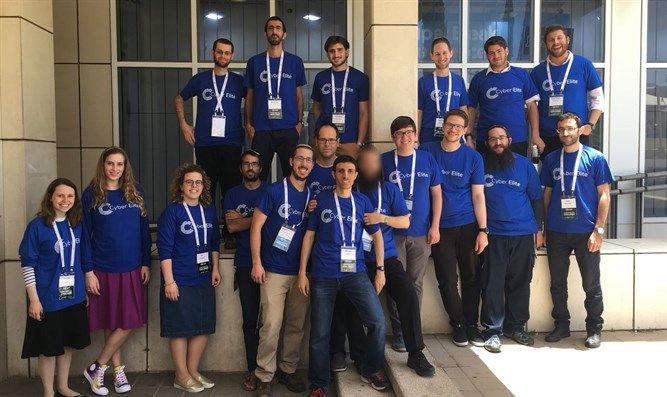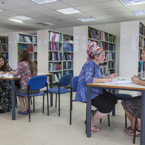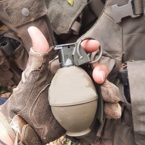This website uses cookies to ensure you get the best experience on our website. privacy policy and terms of use.
4.7.2018
At the Tel Aviv University Cyber Week, only 90 contestants from all over the country managed to enter the final stage of the Cyber Challenge contest — and 18 of them belong to JCT's Cyber Elite program! All 3 finalists were women from JCT's Cyber Elite program.

Eighteen religious men and women who are part of the Jerusalem College of Technology’s (JCT) Cyber Elite program were among the 90 competitors in the national Cyber Challenge competition, held at Tel Aviv University during Israel’s national Cyber Week from June 17-21."Cyber Week is a large annual international cybersecurity event, hosted each year at Tel Aviv University in Israel. Over the past eight years, Cyber Week has become internationally acclaimed as one of the top cybersecurity events in the world."
Cyber Elite opens new doors for haredi and national-religious Israelis, who previously had virtually no access to cyber careers because the primary path to that industry in Israel is participation in cyber units within the military. So Cyber Elite provides intensive cyber training to outstanding graduates of JCT’s degrees in software engineering and computer science, while simultaneously placing them in cyber departments of multinational, aerospace, and defense companies as well as in cyber startups.
Cyber Elite is a partnership between JCT’s Lev Academic Center, the Rashi Foundation’s Cyber Education Center, and the National Cyber Directorate of the Israeli Prime Minister’s Office. The program was developed in collaboration with senior executives in Israel’s cyber industry, and its courses combine theory with hands-on experience, in accordance with the needs of the defense and civil industries.
The program is part of JCT’s broader mission to empower religious Israelis through science and technology education, as 4,500 haredi and religious students study at the college’s Lev Academic Center. JCT trains 18 percent of Israel’s women computer science students. It comes as no surprise, therefore, that Cyber Elite students represented one-fifth of all competitors in the final stage of this week’s Cyber Challenge. The 18 Cyber Elite participants who reached the six-hour final round were chosen from among 400 candidates from across Israel who took part in an online preliminary screening stage in May. Only three women qualified for the final stage—all of them from Cyber Elite.
Yehiel Levin, a 29-year-old haredi father of two who studied computer science at the JCT, was among the Cyber Challenge competitors from the Cyber Elite program. As part of the program he works as a student in the research-and-development department of a company that monitors and identifies computer network threats, and after completing Cyber Elite, he is expected to continue working for that company in a full-time position.
“I would not have been be able to get a job like this without Cyber Elite, no matter how talented or professional I was,” Levin said. “The skills we acquired and the connections we made with the cyber industry this year enabled me to get to where I am today.
Only a select few got accepted into Cyber Elite which was an 11-month-long pilot program for 31 students—16 men and 15 women—that JCT hopes to continue and grow. The initiative has given Israeli companies access to previously untapped talent in the religious community.
“The program provides an opportunity for secular business leaders to get acquainted with the religious and haredi sectors,” said Levin. “There is also a huge change taking place in the haredi public. When I went to school, it was not easy to explain to people why I was going to pursue such a career. But over the years, I have seen a greater understanding in the haredi community. Even when there is no agreement, there is much more acceptance of my path as a professional.”
Moshe Gowers, 32, began studying secular subjects a decade ago after previously only learning in a yeshiva environment. A computer science student at the Lev Academic Center, he began working as a developer and programmer until joining Cyber Elite, where he studied cyber security and hacking.
“In the Cyber Challenge competition in particular, and in cyberspace in general, you have to think outside the box,” Gowers said.
“During the contest, we were able to cope with challenges we tackled throughout the year as part of Cyber Elite, to solve things and to deal with new tasks,” added Levin. “In cyberspace, there will always be something new to learn and try.”

Prof Foxbrumer was recognized by president for contribution to Swords of Iron...

JCT Teams Up with MMY to offer academic programming to women studying in the...

Dr Yossi Golobchiev from JCT's Electronics department discusses the recent...